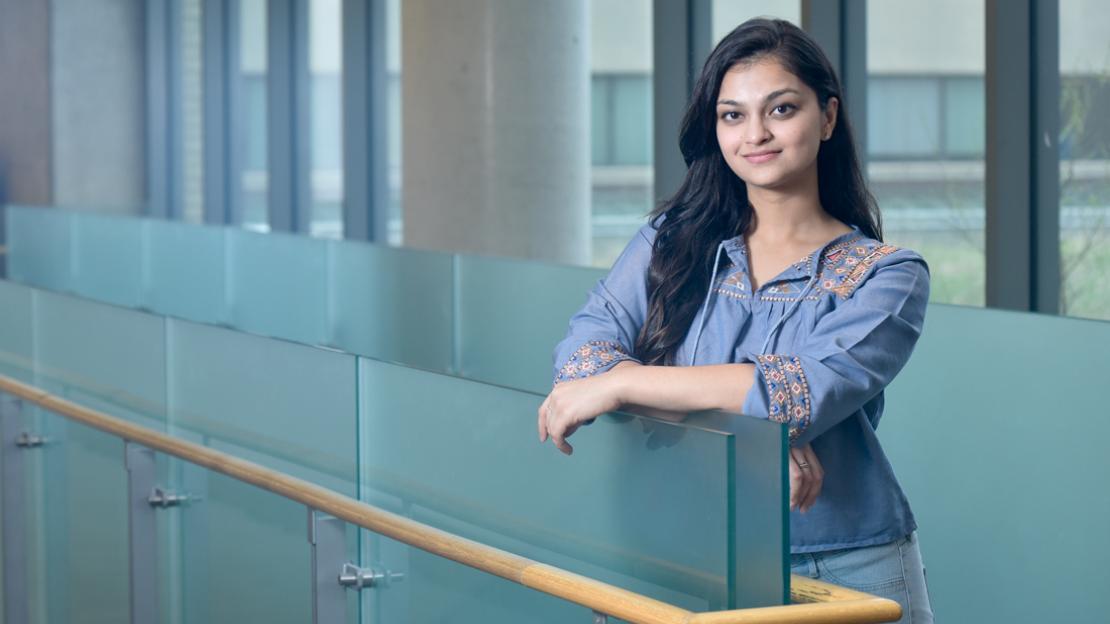Priyanka Challa is determined to find an effective, affordable treatment to a disease that’s ravaging the tropics.
She’s looking at potential drug regimens for leishmaniasis. The illness infects up to 1 million people annually and her research earned her a speaking engagement at the International Congress of Infectious Diseases (ICID) in Buenos Aires in March.
“Presenting at the [ICID] on the susceptibility of Leishmania parasites to the Amphotericin B and Fluconazole was a life-changing experience,” says Challa.
“Leishmaniasis” is an umbrella term referring to a group of diseases caused by Leishmania protozoa, which are deposited in humans through sandfly bites. Although leishmaniasis can be manageable if treated immediately after infection, it has a devastating impact in developing countries where sandflies are abundant and medical resources scarce.
“My project was the first of its kind to use a commercialized antifungal drug susceptibility tool to test for profiles of Leishmania. Thanks to the travel fund, I had the opportunity to present my work and learn and discuss ideas from pioneering clinicians and scientists working on similar problems,” says Challa.
Symptoms of the disease include swelling of the spleen, skin lesions, and in extreme cases fever and death. Difficulty in curing the infection stems from the fact the more than 20 Leishmania species are carried by over 90 kinds of sandflies. Even identifying the type of bite doesn’t necessarily tell doctors what kind of parasite may have infected the patient, or the kind of sickness they’ll contract.
“Leishmaniasis is a poverty-associated disease with several different forms and is endemic to many subtropical parts of the developing world,” she says.
“Current treatments include toxic therapies and have species-specific effects. Lack of a standardized method to test for susceptibility of various Leishmania species hinders doctors in their efforts to provide care.”
Challa’s efforts to standardize leishmaniasis treatments have also earned her speaking engagements at the American Tropical Society of Tropical Medicine and Hygiene and the Institute of Medical Science Summer Undergraduate Research Day. Challa is just one of the many students who made use of the fund this semester and those who’ve already received funding remain eligible for future grants even for the same research project.
The Academic Travel Fund helps students carry out research in their fields by reimbursing up to $2,000 in travel and accommodation expenses incurred while working in the field.
Other funding recipients have presented research in Sweden, the US and Mexico on topics like clean drinking water, cancer growth and therapy, suicide rates in Nunavut, and countless other specialized fields.
